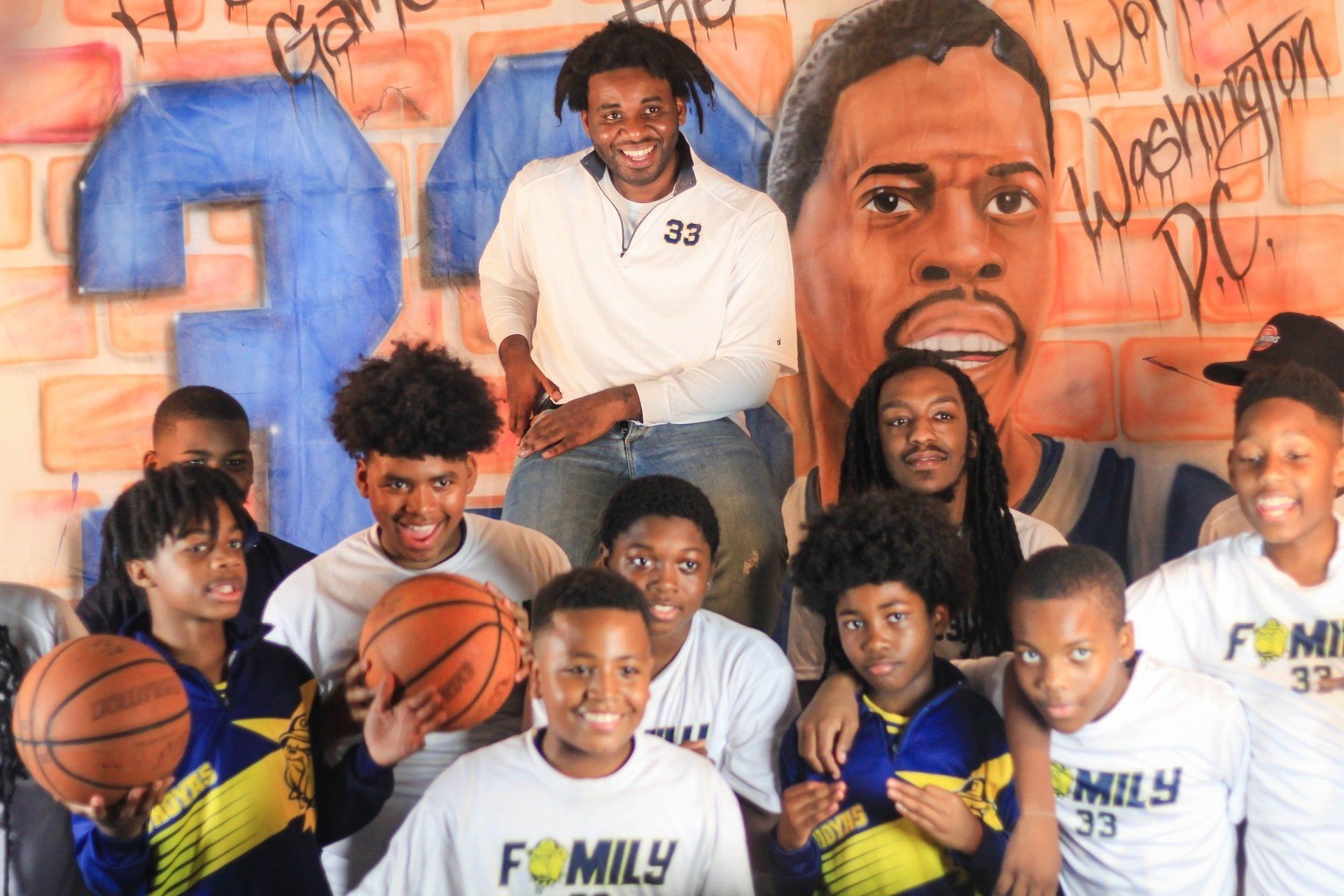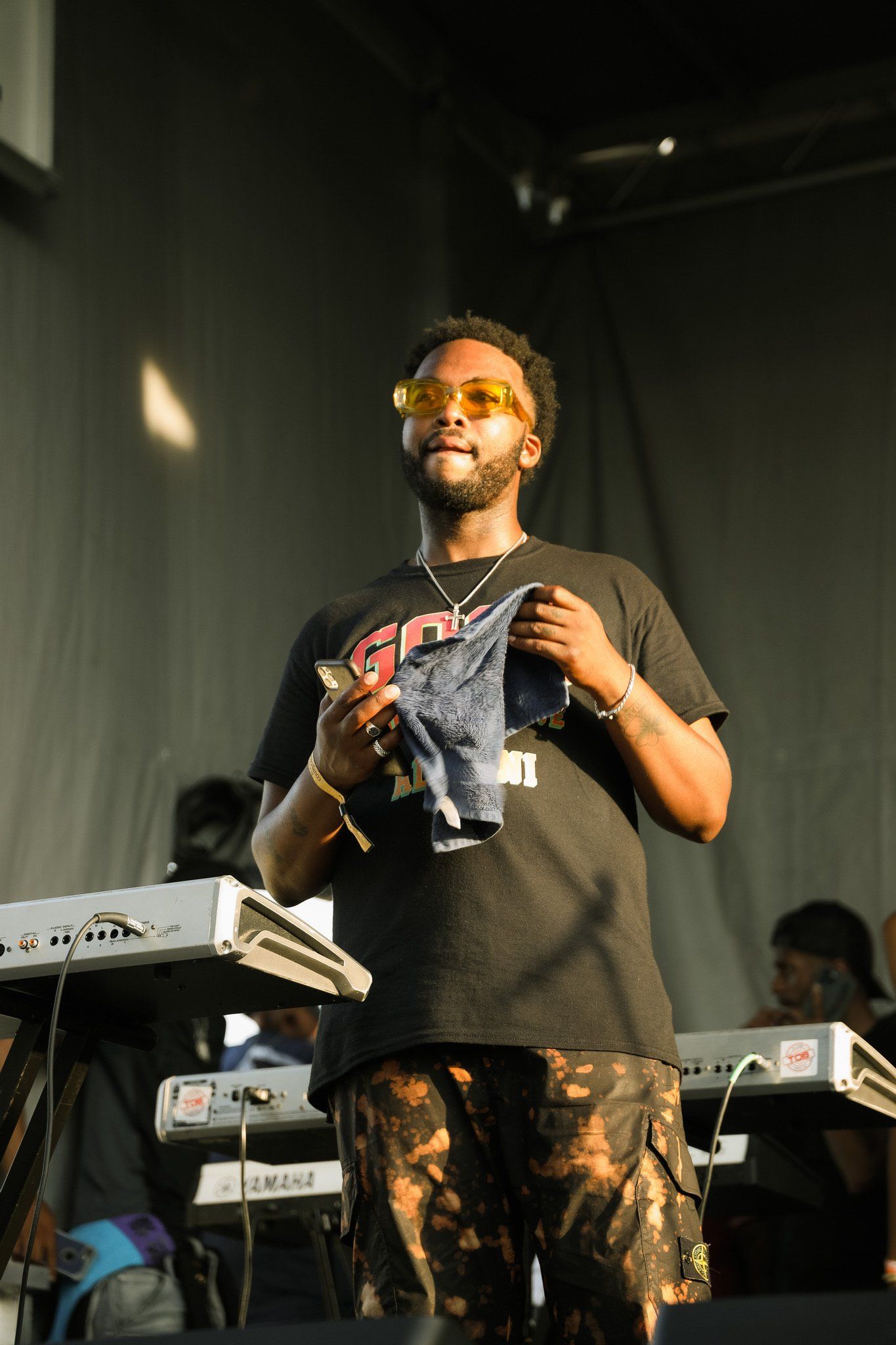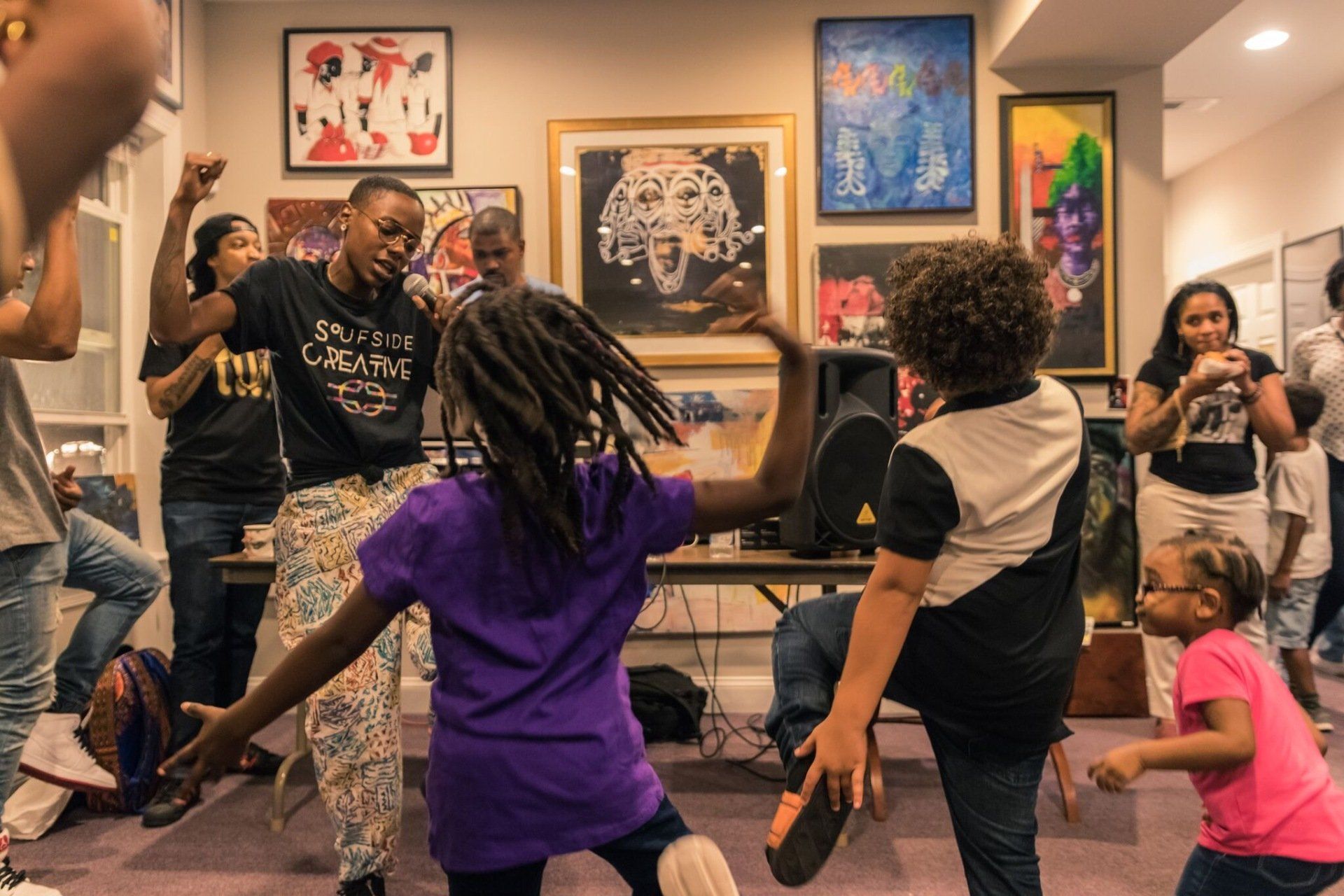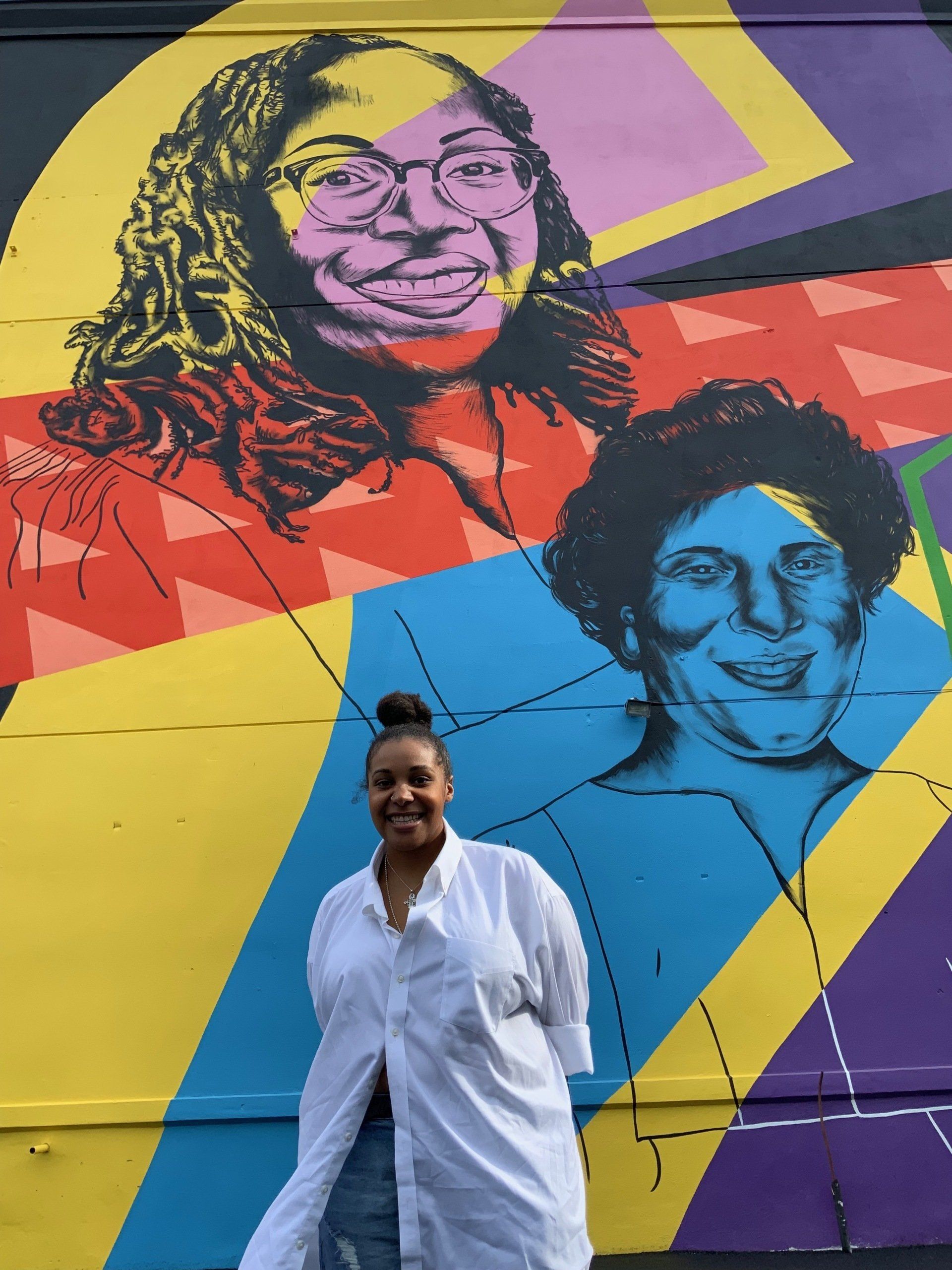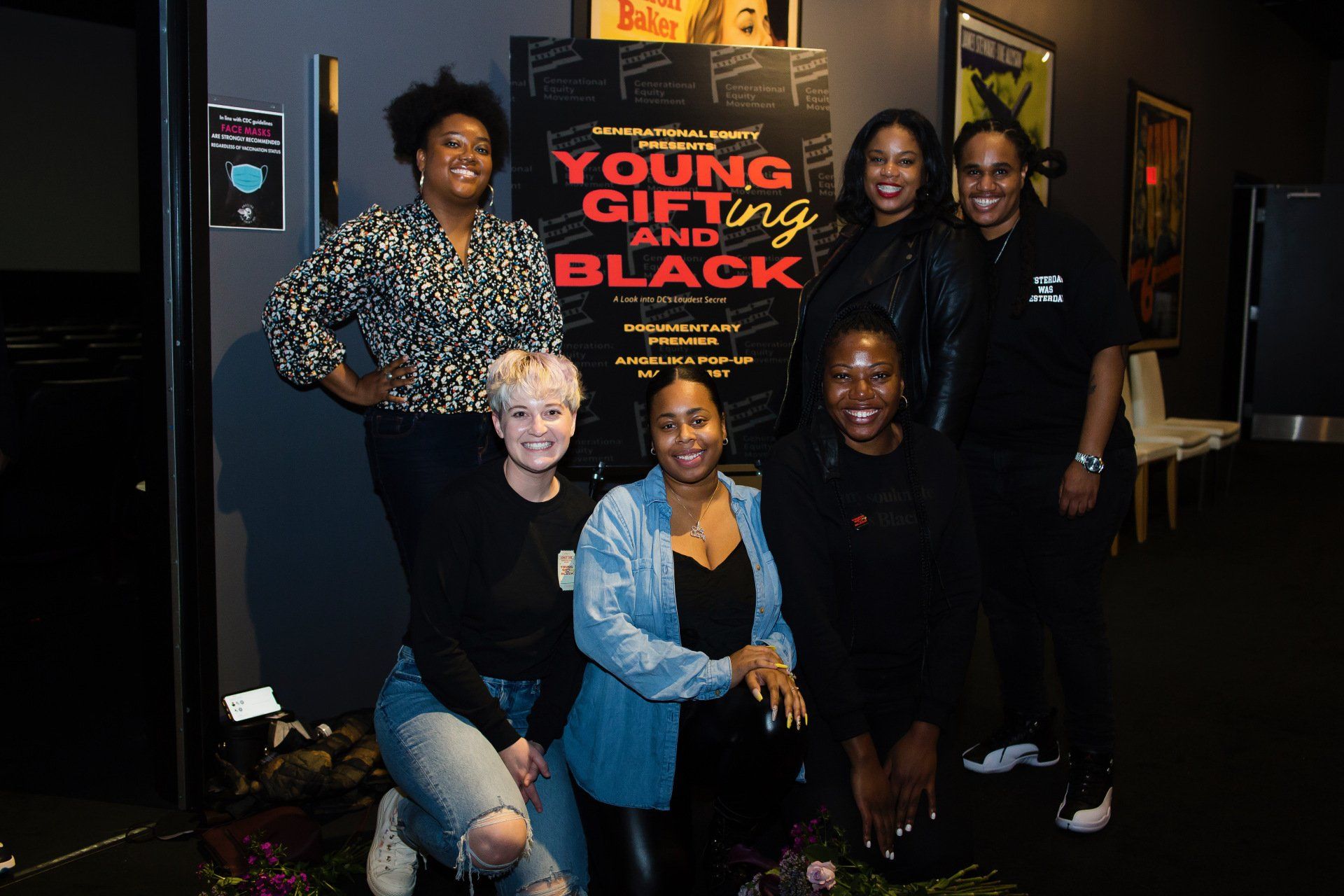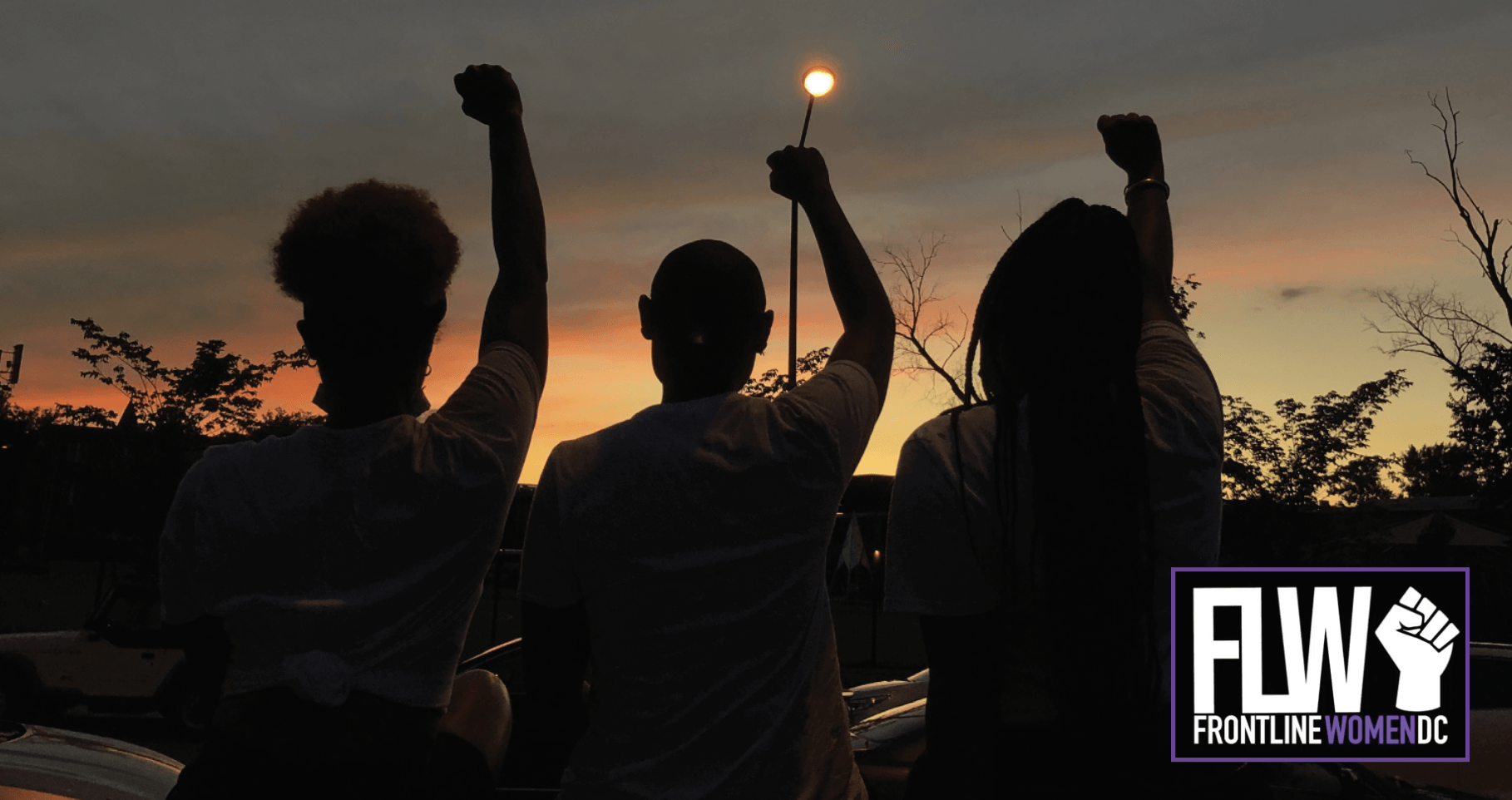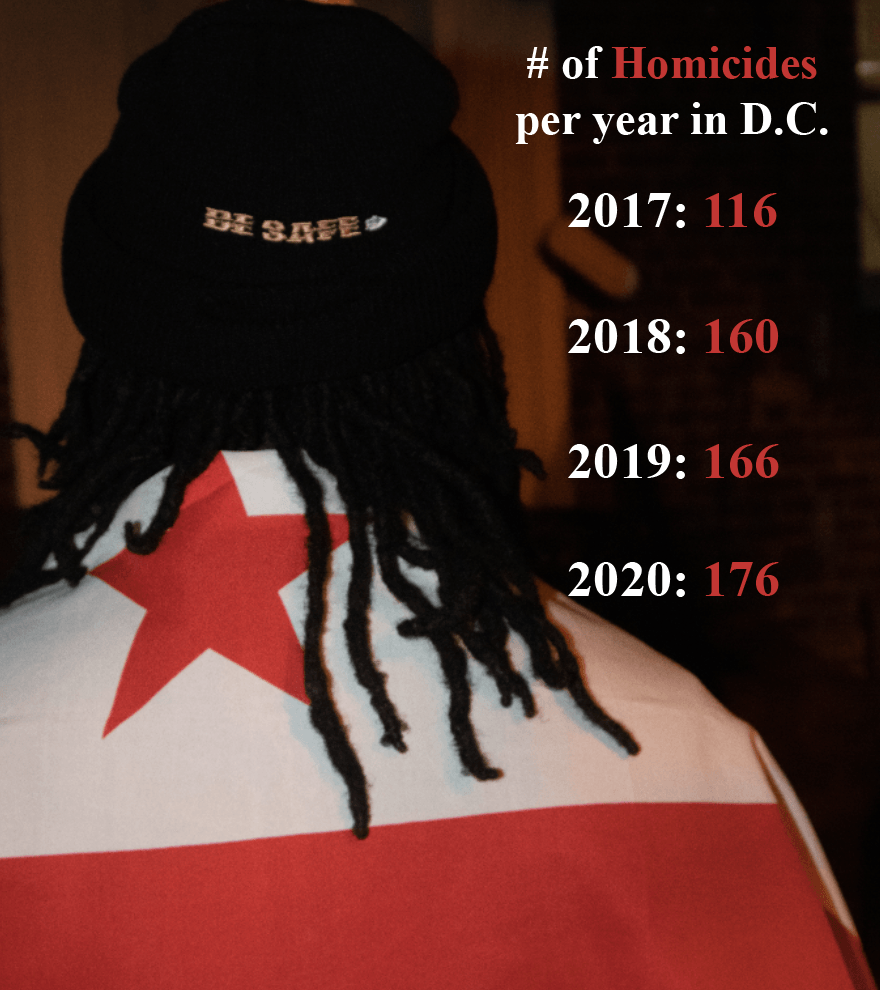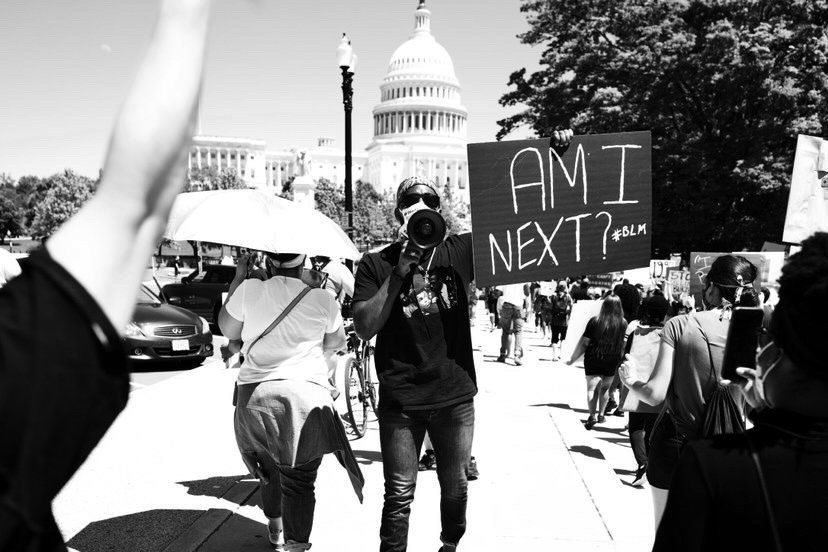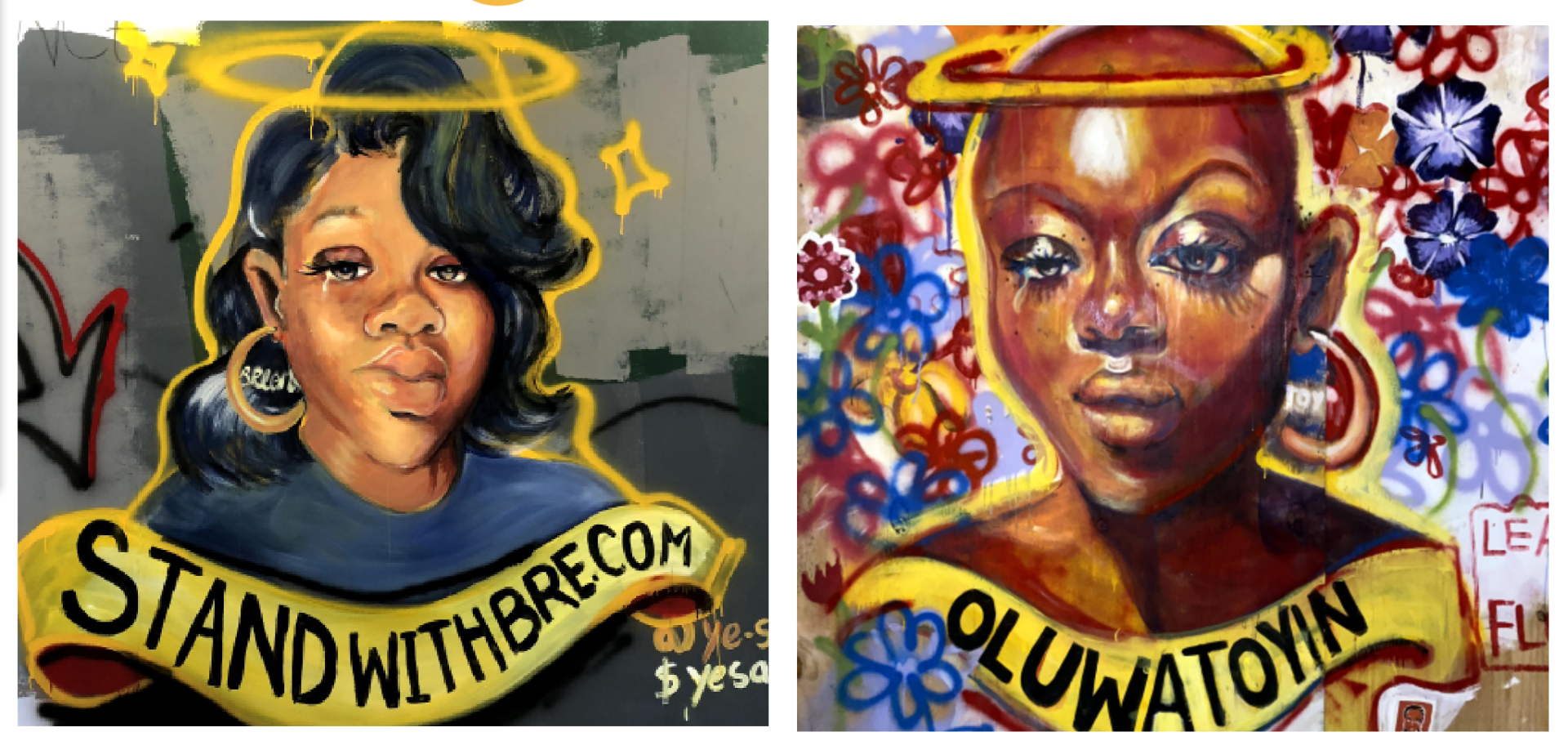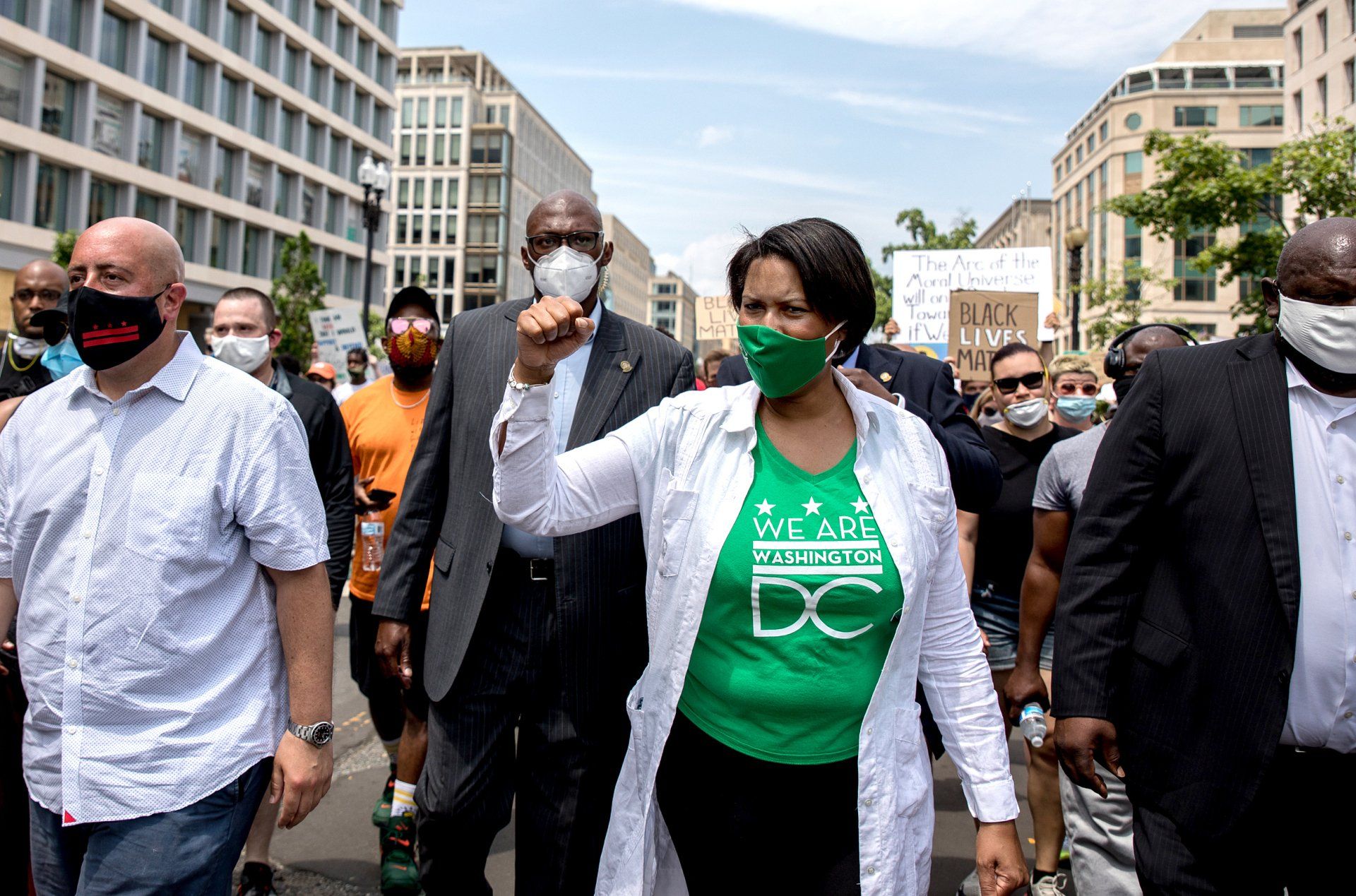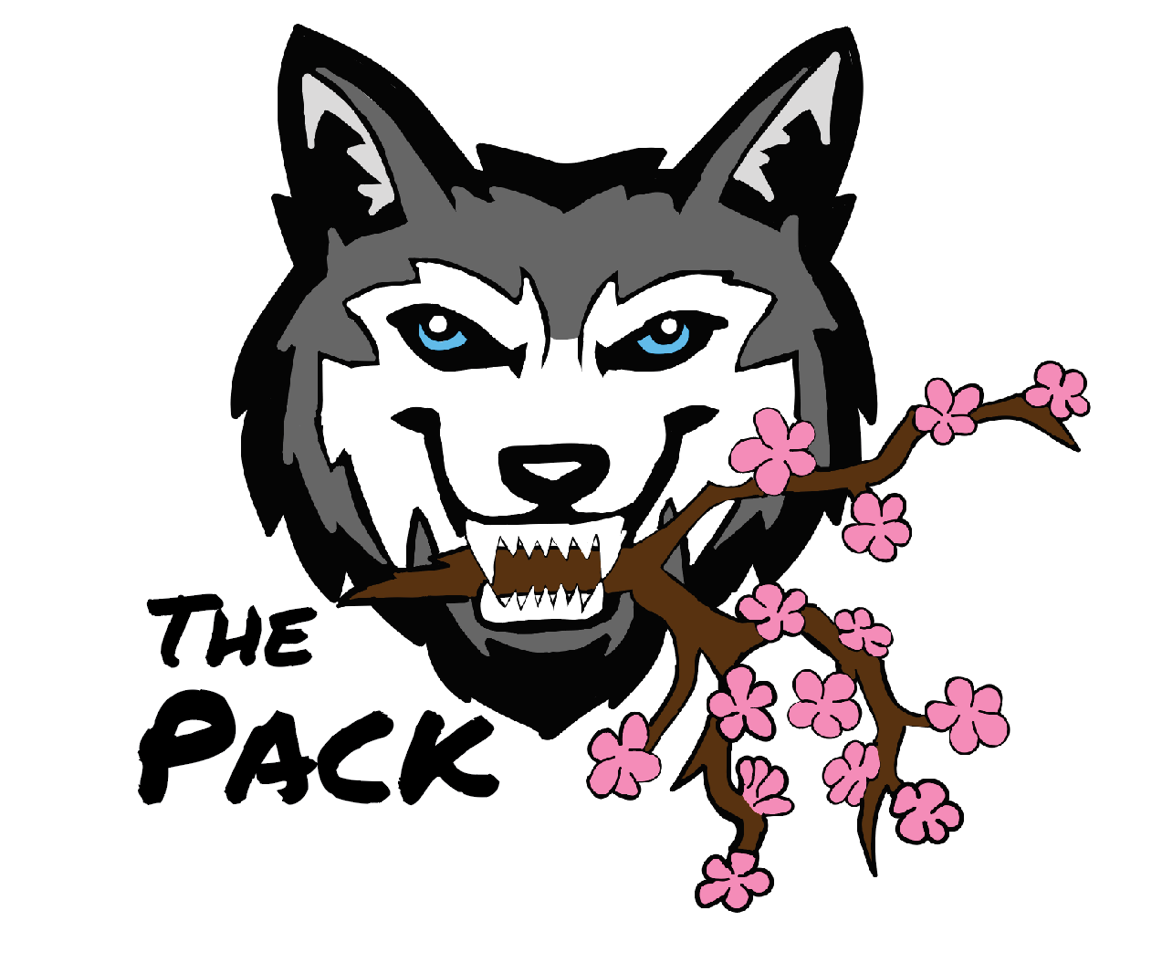Ty Hobson-Powell doesn't believe in respectability politics
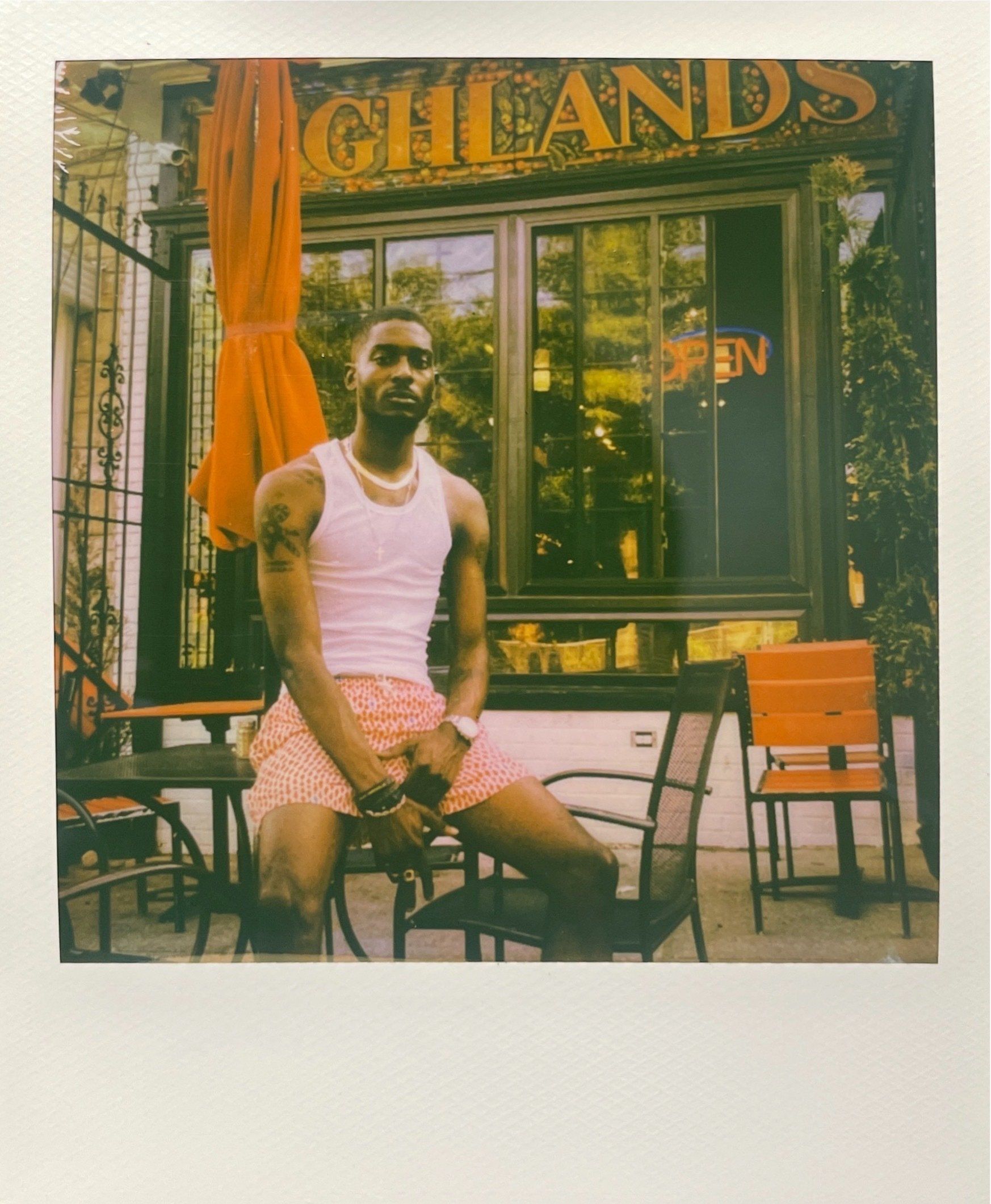
The Washington Native discusses the politics of DC Statehood, activism, and more
Ty Hobson Powell is one of the dynamic voices in DC advocacy. It’s hard not to be impressed with his resume. Ty finished high school at age 13, graduated college with his bachelor’s degree at age 15, and received his masters at age 17. It would be easy for Ty to be defined by these academic achievements, but his reach and influence go far beyond them. He is an activist that has been critically engaged with all issues relating to the well being of Black people in DC, especially within the last few years.
In 2020, after seeing the frustration of his peers during the many racial justice demonstrations of 2020, Ty co founded Concerned Citizens to help organize the thoughts and voices of DC. Concerned Citizens started with marches, and soon moved into a place of advocacy through mutual aid drives and providing communal resources for residents of DC from turkey drives all the way to feminine care products.
Ty’s advocacy has also crossed over into making sure DC Statehood has a future. He has been a partner with 51 for 51, a group that mobilizes to ensure legislation making DC a state has a future to be passed.
Though Ty Hobson Powell wears many hats, he is one of the most approachable individuals you will ever meet. I met him on the corner of 14th and Crittenden St in Uptown DC, right across the street from Highlands. A random bystander probably wouldn’t guess that this 6’1 black dude posted on the corner arguing about how good Luka Doncic has been in the playoffs so far, is one of the leading advocacy voices in DC.
But that’s the point. Civil engagement should not be gatekept, or have a certain look. That premise is what's kept the average person from feeling like they have a voice that can participate in the larger discussions. The politicians that represent us are not seen as real people who live the same lives as us, or people that we can just walk up to on a random street corner and talk to.
Ty and I talked outside for about an hour. Here is an excerpt from our conversation:
One thing I would say about your advocacy, and your approach to your advocacy is you're not very politically correct about how you approach things, you kind of cut through all of that,
That's it. You gotta meet people where they at man.
Where does that come from?
That shit was always corny to me growing up. I had an interest in politics. I had an interest in engaging in all these different forms, but I never felt like it was for me because the terms of art, they were using the default language, the dress code. I was like, I don't really subscribe to that, but I knew that I had the mental wherewithal to be in those spaces and compete. And so I really just sort of challenged the world to redefine how we let people show up, you know? So part of that is doing things like, I had a lecture at Boston University here in Washington, DC where I wore a ski mask. Little things like that. Really just shaking up the idea that leadership doesn't look like a certain thing or a certain background, a certain education history. You can literally be whoever you want to be and still be a leader.
Do you think that hinders people from wanting to participate in discourse?
Absolutely. I think people feel like there are these invisible rules, these sort of parameters that would have to frame them in, or frame them out of a conversation. And it's like yo, just be yourself. Just show up. Because at the end of the day, I think that directly impacted people are the people that are best situated to affect change because they know what they wanna see move. They have the lived realities that's tethered to the talking points. You know Joe Biden's gonna sit there and wax poetic, but at the end of the day, he's in the ivory tower, he's in the white house. He's not really dealing with gun violence. I mean, granted, life is life. So he did get touched by the opioid crisis with the loss of his son. But for the most part, these politicians that are enacting the legislation that governs these social issues are so deeply removed from even filling the impact of them, that it's like, why would you ever be the driving force for this social change? How could you ever feel like it's truly informed?
What would you say to people who do believe in abolition of certain systems but not the practicality of it. They believe in the principles of it but think you know, white people aren't gonna let go of certain things.
I think that at the end of the day, there is that thought to have, right? Yeah. Like okay, if they've been holding on power generationally, what the fuck makes you think that they would just disinherit themselves from wealth, the power and all these things that literally keep shit moving on earth. I mean, there's a hopefulness, right? And we cannot let finite disappointments undermine infinite hope that exists if we all choose to try to be aligned. So there is the prospect that things could change. Really just staying encouraged because at the end of the day, things can change, things have changed. Maybe not at the rate that we want, but things have changed.
We chip away.
We see that it's possible. It's like chip away at it, but don't chip away at it as though it's the end all be all. Chip away at it, but as a side project grow your own garden. Chip away at it, but as a side project become gun literate.
Because little Bobby out in Kentucky and shit, he's been knowing how to shoot since he was four or five you know what I'm saying? He has been going hunting with his dad, learning how to live in the elements, how to fish, how to make a fire with a flint, simple shit, boy scout shit since his youth. And that's what I think that we need to tap into. And you know, I think that we live in two sorts of universes, one that is sort of tethered to the systems that exist, that we live within. But one that is totally imaginative of what this shit would be without it. So when I meet abolitionists and they have this prospect that it's not realistic, I say look, it's realistic, but you can't just be an abolitionist. You have to be an abolitionist plus. And what I mean by that is, if you're just an abolitionist, you're only solely focused on the destruction. You're not focused on the creation of the system that comes behind this one you just destroyed. And the thing about that is, without intentionality around how you choose to approach abolition you're just destroying one system and if you're not intentional about what comes next, another system that doesn't serve you replaces it.
And that's usually always the counterpoint, especially with police, they're like, well what would we do instead?
I mean we've seen what we could do instead. We've seen that the majority of the police deployments are actually for nonviolence. They're actually for mental health crises, for check-ins, for things like that. We can have certified officials doing that kind of shit. We don't need people with guns trying to get my man that's on the boat out the middle of the street. We don't need that level of escalation for a wellness check for somebody who is experiencing some extremities of their neurodivergence or whatever the case may be. We don't need somebody with a gun or a taser or an aggressive voice or energy showing up to them and trying to be the person that's gonna be that intervening factor.
So we know what we could do as an alternative. Abolition has a prospect of being enacted, because there are things that we can very clearly see needs change. I don't want you to think that our founding document that carried us over from 1776 till now is gonna be valid forever, or even that it's valid now. That it doesn't need improvement. What we really have to do is just challenge ourselves to think about the plus. Like, okay cool, fuck the police. We want to abolish the police, they've disproportionately jailed, killed a certain portion of the population, the numbers bare it out. That's not an opinion, that's an objective fact. Okay, cool, we've established that, but now what?
Let's talk thoroughly about what comes next. Because if somebody snatched my granny purse, she gotta have some follow up. I'm not really gonna like that idea if we can't secure things. And again black people are people who live through a lot of the exacted violence, so it's not like we don't like governance to some end. It's not like we don't like peace and order. It's just that the police don't represent governance, peace or order to black communities. They just have never done that for us.
And so it's like, it's challenging us to really figure out what is the thing, realistically. Again, being realistic. Let's get some real concrete things on paper. What is this plan? Do we have a special force that is deployed for mental health crises? Cause like I said, that makes up a large number of dispatches. And there are other locales that have done pilots similar to that.
And they can't even focus on actual hard crime because they're stretched so thin.
They don't stop crime.
Exactly.
They respond to crime.
But they don't stop crime and the stats show that. So again, if we're gonna inject hundreds of millions of dollars into something that is not preventative in nature, maybe we should stop and think about reinvestment into public schools or reinvestment into rec centers because we've already seen that conventional wisdom says that these are preventative measures. These are the outcomes that keep you from even making it to the block to even be able to shoot the gun or be shot by it. So let's get the money there before we decide that we wanna have these cops coming out here acting like they're playing war zone cause they got AR-15s and they got vests and they got tanks. I mean literally, I've seen some of the craziest shit. It was almost like we were a foreign occupation the way that I seen regular men and women deployed against us just for using our first amendment rights and saying, hey y'all, shit is fucked up, we want to change it. This is during 2020. And this is at the capital. It's supposed to be the bastion of democracy. We're supposed to be that shining city on the hill. So shining that we're a city and not a state, so exemplary that we just had to be classified like that. You would think some exceptional shit was happening here.
Well that's a going segway into DC statehood. So you you've done a lot of advocacy and strategy with 51 for 51. [The initiative for DC to obtain statehood]. A lot of people describe statehood as a civil rights issue. Do you agree with that notion? If so, elaborate on that.
Statehood is a civil rights issue. It's a civil rights issue because it inherently is linked to our civil rights. Right now we are taxed without representation, which quite literally is the founding principle of America, is the reason why we decided we wanted to depart from England, taxation without representation. So the idea of flipping it and using that same political ideology as the blueprint for your capital locale is fucking crazy. We are the only advanced nation in the world that has the capital of the country not tapped into the overall democracy that governs it. The only advanced nation in the world. So I mean, whether you're doing your comparisons or whatever the case, it doesn't check out. There's 712 plus thousand residents here, mainly black and brown, that have all of the obligations as Americans serving on juries, serving in the military, with none of the same rights. And so it's like, how can that be right? How is that something that makes sense?
For me, I don't understand the pushback against DC statehood and the way that it happens. I think that a lot of the pushback against it is a scourge of misinformation around what DC is. Because again, the heart of this question is how DC's lack of statehood is a civil rights issue. If DC is a state, we're the only majority black state in the entire United States. That's 51 fucking states and we would be the only majority black one. The only majority black state in the entire union.
So getting into some of the counterpoints... Fun fact, I didn't even know we had shadow senators, till a few years ago. But our representative, Eleanor Holmes Norton can suggest legislation, craft it, but ultimately she doesn't have a vote or a final say in what takes place. And as you just alluded to, we would be the only majority black state within the US. A lot of the arguments on the national level I've seen against it, automatically fall into politics. They say Democrats just want this much more representation within the House and Senate. Talk to me about why that shouldn't be a reason statehood is blocked.
It's a tired ass argument. I'm sick and tired of hearing that shit. First of all, with the way gentrification is whipping DC, we can't even definitively speak to the political identity of Washington DC for the next 10 years at all. Like, yes, we have decidedly been liberal, but who's to say that that's gonna be a forever thing. But secondly, political parties and where they'll fall in line should never be the reason for why or why not we choose to enfranchise Americans who deserve to be a part of a thing that we said is a thing. If democracy is democracy and it's by the people for the people, let that shit be universal. You don't get to pick and choose, you know what I'm saying? Literally there are some people that try to make it a Democrat issue or Republican, it's like you said, it's a human rights issue. It's a civil rights issue. It's to the point where, why are we paying the highest federal taxes, but being left out of access to federal institutions that would allow us to enact the changes or influence changes in the way that we want to. How many brilliant and profound minds do you think could be in the Senate?
We got AOCs here. We got Obama's here. We have the whole spectrum of leadership. And if America thinks it has seen profound politics, I challenge them to come here to the city and really see what I've seen growing up, who I've seen. We were right here on the corner of 14th and Crittenden, watching people articulately politic about sports.
In depth with points, stats to back it. Like the formula, the way that you would bring together any formal debate, it's like bro, we have that talent. Why don't we have that access?
I think we've probably seen the biggest push the last two years for statehood and have gotten as close to getting it enacted as ever, even though we're still kind of far away. There are a lot of people, particularly on the native side, that aren't really sure how they feel about statehood. And I think a lot of that ties into the fact that because DC is a city and it's not a state, we get certain perks....
DC Tag ain't going nowhere. The museums can still be free. First of all, DC Tag gets more money. It's already a thing, we would generate more revenue.
And it's there because we're not a state.
DC Tag is literally there as a congressional allowance. It is a small percentage of the revenues that we leave off the table because we aren't able to tax because we're a federal locale. There are so many people that come in and out of Washington, DC, every single day, we don't have any tolls. We don't have anything going on to monitor that traffic, to govern that traffic. But if we did, if we could, if we taxed the way that other states could, what would that look like? Already though, just by the numbers and how we already have economic output, we are sustainable on our own. One of the few overall locales that would be able to boast such a talking point. We do our own shit and we can do it without federal assistance. So the whole idea that oh, DC's a federal place they need.... no. The federal government likes to use us as a chess piece on either side of the aisle, Democrats and Republicans. They're all complicit with that shit. But now is the time to really stop playing with DC.
With where we are with statehood currently, 10 years from now, do you see DC being a state?
Man. You know, I sit here and I wrestle with this question all the time. Cause people ask me, they're like yo, realistically, like I know you do this work, do you see it? And it's like, at the heart of the Republican Primary back in 2016, I did not see Donald Trump advancing legitimately through a field of seasoned veterans through the primary.
I didn't. I said maybe he has a wild shot, sure. But I never saw that. So when we talk about predictive analysis in the world where every year seems to have been a different lesson in transformative politics, I cannot definitively say yes or no. Maybe Puerto Rico gets looped in with it and it's a bargaining chip for both sides of the aisle and they decide to do it in 2024 to open up the vote for the general election because they want more votes for their candidate for president. They think that they stand better chances with that. Who knows? There is no telling man. I think that for me, my sense of urgency is that DC statehood needs to happen years ago, decades ago.
So I'm working to make it happen in the next year And the year after that. And the year after that and the year after that, and there's that same level of intensity stacked. So it's like every year for these next 10 years, however that scales out, I'll be going hard as though this is gonna be the year to get it done. Because no idea is more powerful than one whose time is coming. I feel like DC statehood's time has come a long time ago and all the writing is on the wall. You know when people talk to me about what the forefathers intended and all that shit, it's like yo, please stop talking to me about what a bunch of racist old white people in powdered wigs who had slaves intended for my future bro. Because if they intended anything, it was for you and I to be second class citizens. If they intended anything, it was for women to be relegated to a life of second class citizenship.

If Thomas Jefferson tasted a Dorito, he would lose his mind.
You know what I'm saying? Like stop talking to me about what they were doing in 1776. They're gonna pass out eating a Nerds Rope bruh. They would never understand anything from today. So stop telling me that. Like yesterday's sauce is today's flavor, it's cool. It delivered us to this point where we can now have a dialogue about it and realize there are things that need to be cut up. Now let's stop back acting like this is that, because it ain't.
We've talked about this from a rights standpoint. But talk to me about it from a perk standpoint in terms of how we can control our money, how we can control laws within our state. Because I'm always reading about how Republicans are threatening to take away some of our rights.
They just keep playing with us, bro. Like we legalized weed.
We legalized weed. We knew we wanted to hit gas. There's enough backwoods and sheets and funnel and all kinds of shit going on in this city where we decided as a social priority, hey look, people should not be arrested for smoking weed. We decided that with over 70% of the vote in 2014.
A dickhead from Maryland attached a provision to the bill, making it virtually impossible to sell. And that's why we're in the place that we are now where we have this sort of gifting market. So again man, it's like, whether it's something that folks might consider trivial like weed, whether it's something more on a deeper level like the HIV needle exchange program, how the transmission of HIV happened because our needle exchange program wasn't allowed to thrive. Let's talk about, gun violence. DC has some of the most progressive gun violence laws on the books all across the nation. But due to our lack of a seat at the table to have an influenced dialogue around red flag laws and background checks, we got guns from West Virginia coming in and wreaking havoc. Guns from Virginia coming in and wreaking havoc. Guns from these states with lack of regulations coming in and killing our young who? Black men and women. So to parret back to the question you asked me earlier about how this is a civil rights issue…
Again, we are Black as hell. The most affected by everything due to DC's lack of statehood. We missed out on something to the tune of 700 million worth of relief from the CARES Act. Do you think COVID just pulled up to DC and was like, oh yeah, no they're not a state, fuck it we gonna go light on em. No, they came and spanked shit. And where did they spank shit at? Disproportionately black and brown communities. Although black people are only like 46% of the population, we made up more than that in the COVID death percentages. So again, everything inherently becomes a racial justice issue about DC statehood. Because when you think about all the pitfalls from our lack of it. When you think about the fact that DC not being able to fully legalize weed put in this like semi criminal status; who the fuck do you think is getting jammed up for the weed? People that look like me and you, it's not them. It's nothing new canna entrepreneurs or whatever the fuck are the names that they come up with. It's us.
So I really just employ people to understand that when you see these social issues that play out, seeing them from a 30,000 foot lens of being a larger issue, but also zoom into that bitch. Cause when you zoom in, especially in DC, it's very black. But that's not even just the case here in DC. Like I said it's in most places. And as a vignette, when I went to Columbia, I was there in Meriden. I was trying to find people that had skin that was like mine. I didn't ask them where the black people were, I just asked them where the poorest place was. That's where I found them. And that as a norm is true here, and in Newark, and in Philly, and in Camden, and in Boston, and in Miami, and in Houston, and everywhere around this entire world. So, you know, DC statehood is just one of the same, it's all tied to this global fight against white supremacy.
So we talked about how our population is about 46% black. We all know gentrification the past 20 years has been rapid. Honest opinion here: With the growth of the white population here, the transplant population in general. Do you think that's why statehood has garnered so much momentum recently? The most momentum it's probably ever had.
Absolutely. These white folks want they rights and they gonna get 'em
***laughter***
White folks want they rights and they gonna get 'em bro. They're coming from pockets of the world where they had agency, where their opinions mattered. There's a Congressman that lives in my district that has to be answerable to me and the social change that I want to see and if they're not, this next midterm, I'm cooking they ass.
We don't have that level of accountability here. We have political back and forth on either side of the aisle, people just jerking DC around playing with us. So yeah, absolutely.
So do you think as the population continues to change that the momentum for it will grow?
Absolutely.
How does that make you feel as someone who's been advocating for this? Being a native of this city as well.
That makes me feel like the writings already been on the wall. And what I want us to do is try to insulate ourselves from the harm as much as possible. Churches have been collecting black money for years and years, weekend and weekend. I like the idea of community trust, where they start buying back land, selling it to their members at a reasonable price. It's enough money swirling through them got damn collection plates. Let's start doing God's work for real, you know what I'm saying? I want us to start having some honest conversations about the fact that while we are not the Jeff Bezos of the world, we have built in institutions that we can use to insulate ourselves if we choose to stick together.
If we choose to really be unified. That's really what I want. That's how I see our way out of it. Ultimately this is a tide that is turning. There's gonna be no way to change the overall effects of gentrification, we can lessen the effects. We can lessen the effects by insulating our community by teaching 'em about the programs that exist about HPAP (Home Owners Assistance Program) about EAP (Employee Assistance Program), about inclusionary zoning, about having them do the work of sitting through these hour sessions so you can get you a free house real quick. And you can get you $50,000 down or $80,000 down or some income determinant support. Let's tap in because what I will say about DC is, all flaws considered, this is one of the places that has the most opportunity I've ever seen. Compared to the United States, I would say it's the best place to grow up and be black.
What do you think is the biggest misconception about the city?
That we are those white people that you see on Capitol Hill. That we are the national monument. It's a whole thriving culture that looks nothing like that. In fact, it's such a small segment of what DC is, but that's always what people from far states associate us with. There's a lot of people, especially during the work that I did with 51 for 51, where I was able to travel and go to the Iowas and New Hampshires, they don't even know DC is a fucking place. They're like really? Outside of the white house there's actually stuff there? Yeah, carry outs, mumbo sauce, go-go music; you could never understand. Sheets and funnel, just themes. There's the Metro, whether bus or train both are unique experiences. We have this whole thing that people don't even know about at all.
Do you think people learning about that culture, about the uniqueness of the city, do you think that'll play a role in getting statehood?
It plays a role. It humanizes us but we're still black. You know what I'm saying? I don't want niggas to ever be lost on that. We're still black. So it's like yeah we see y'all...but we gonna wait till more of our folks get up in there before we really turn the wheels of change. That's really what I feel. This is my prediction. This is my sort of vision. When DC's black population dwindles to below 40, DC's statehood cries will be violent, because at this point in time, these are folks that have come from places where they're used to having agency, they're used to their opinions mattering, and they will then be the majority. They will then be the folks that are in the driver's seat. City Council's composition's gonna start looking different.
We're going to start seeing some interesting mayors in the next decade. In the next 10 to 15, we're gonna start seeing real changes. And so it's just like, I'm all for it, I just want black people to insulate themselves as much as possible. Everybody is getting their little stake, let's get ours. Let's really be intentional about getting ours too, because that's the only way that we'll do it. It's that consolidated power. A community land trust is the only way to compete against Douglas Development Corporations or Clark, or these larger entities. And even then you're not really competing. You just getting what you can get. You stealing what you can get. We don't got that money, but we're gonna get our little snack and go home and it'll be good and take that as a consolation, as opposed to going home hungry entirely.
As an activist and issue advocate, you've seen a lot of progress but you might have seen a lot of things stall. What keeps you optimistic?
If you are optimistic.
***Laughs***
Right. You said, what keeps me optimistic and I just went into this dark place.
But what keeps you going? What keeps you continuing the fight?
What keeps me going is I'm black and I'm in this, I ain't got a choice. I got a daughter. She's caught in the intersection of being a woman in a patriarchal society and being black in a white supremacist society. It's layers, and I'm her protector. So if for nothing else, that, just in service to my daughter. But when I just think about it, bro I exist. I wake up every day and I'm decidedly black and 6'1. I scare people just by existing. I'm a nice person bro, I'm much more inclined to give you a dollar than take it but that's not how I'm perceived. I know that. I live in that world.
We can laugh about it here, but it's the same world where there's a reason why Trayvon would get killed. It's the same reason why Ahmaud Arbery can't jog in peace. It's the same reason why so many black men, women, non-binary folks have been victimized. So what keeps me going is, I don't have a fucking choice. I am either active in changing this shit, or I'm passive and letting it happen to my people. And it's like, I would rather take uncomfortable freedom than peaceful slavery.
